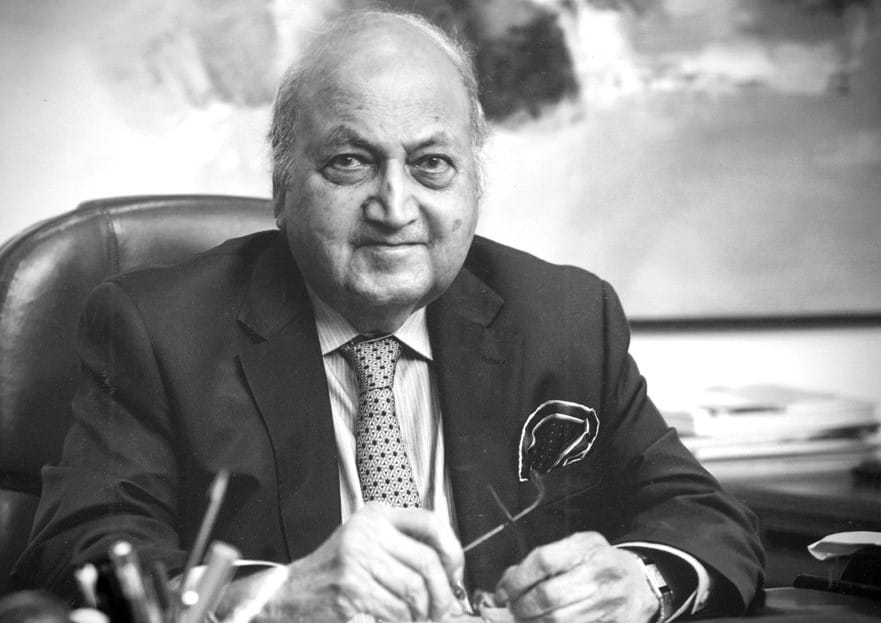Keshub Mahindra, the senior-most Wharton alumnus in India, is chairman emeritus of India’s Mahindra Group, a $20.7 billion global conglomerate. His father and uncle founded the company in the mid-1940s. Mahindra joined the business soon after its inception, took over as chairman in 1963, and retired in 2012 after leading the group for five decades. In a rare interview, Mahindra, 95, spoke with Wharton Magazine and Knowledge@Wharton about his passion for philanthropy, encouraging younger generations to aim for the impossible, and his regrets.
If I had to name a couple of my mentors, from the business world I would pick [industrialist] J.R.D. Tata, and from the social and political world, [social activist] Nanaji Deshmukh. One common thread among those I admire is their passion and dedication to providing support to unfortunate people who have not had opportunities to do something in their lives.
It is important to provide opportunities for people to grow. We do this through our various foundations and charities. We focus very heavily on educating girls; we are helping educate more than 250,000 girls a year.
I read three or four books at a time. I like to read about history and culture. New-generation writer Yuval Noah Harari, author of Sapiens, is profound in his breadth of coverage.
At my age, you don’t have aspirations anymore. You may have regrets.
Many years ago, the government asked me to help set up what became the first housing finance [program] for the poor. I visited some of the most deplorable slums in India. I would come home and wonder how people could live like this. That had a huge influence on my life.
One incident that affected me deeply was the Union Carbide tragedy. [Editor’s note: Mahindra was non-executive chairman of Union Carbide India in 1984, when a gas leak killed thousands of people in Bhopal.] The issue is pending in court and is a matter of sub judice. It was regretful, remorseful, and painful.
My goal has been to help those who need help. I am not being charitable. I genuinely feel for people. But I am also in a dilemma about what one can do, because there is a limit even to charity. So, one despairs.
I don’t know what my ideals were when I was younger. I didn’t think much about these things. When you are in the 20s, you don’t sit down and say, “This is what I want to do.” You take life as it comes. I think your choices begin at about age 30. By then, it is too late to change. Only the brave have the courage to transform their lives.
I tell my children and young people two things: one, dream about achieving the impossible—because impossible things do happen. Two, be compassionate. Think about others. Money is not everything.
I am a great believer in people.
My children and grandchildren are involved in different careers but are deeply motivated to effect social change, whether it’s toward education, health, or the environment. Recently, my eldest daughter set up an NGO that provides free housing to cancer patients undergoing treatment in Bombay. They are fortunate, and I would like them to continue working and spending their time in these meaningful ways.
Happiness is an attitude of the mind. Take joy in the happiness of others.
Published as “Keshub Mahindra W47” in the Fall/Winter 2019 issue of Wharton Magazine.

























